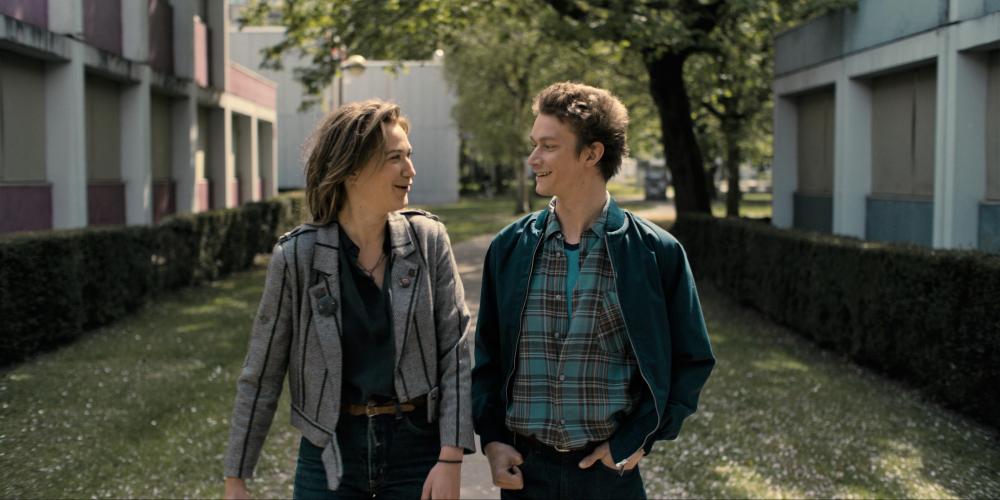
Willem Wallyn drew on his own past when writing the scenario for the TV series on the Nivelles gang. He studied criminal law at VUB, became a lawyer in Brussels and, as a cabinet member, prepared the parliamentary commission of enquiry into the Gang.
One of the main characters (Vicky) is a direct reflection of the screenwriter. Vicky too studies criminal law at VUB, has a dorm on campus and is a DJ at FM Brussels. "The only difference between us is that I have never been in bed with a gendarme," says Willem Wallyn. "We filmed in exactly the same dorm, by the way." The VUB campus features prominently in each of the eight episodes, locations such as the Rector's Office and the BSG hall actually provided the backdrop for several scenes. Wallyn says he has particularly fond memories of his time at the VUB and still sees many of the people he was rooming with there back then.
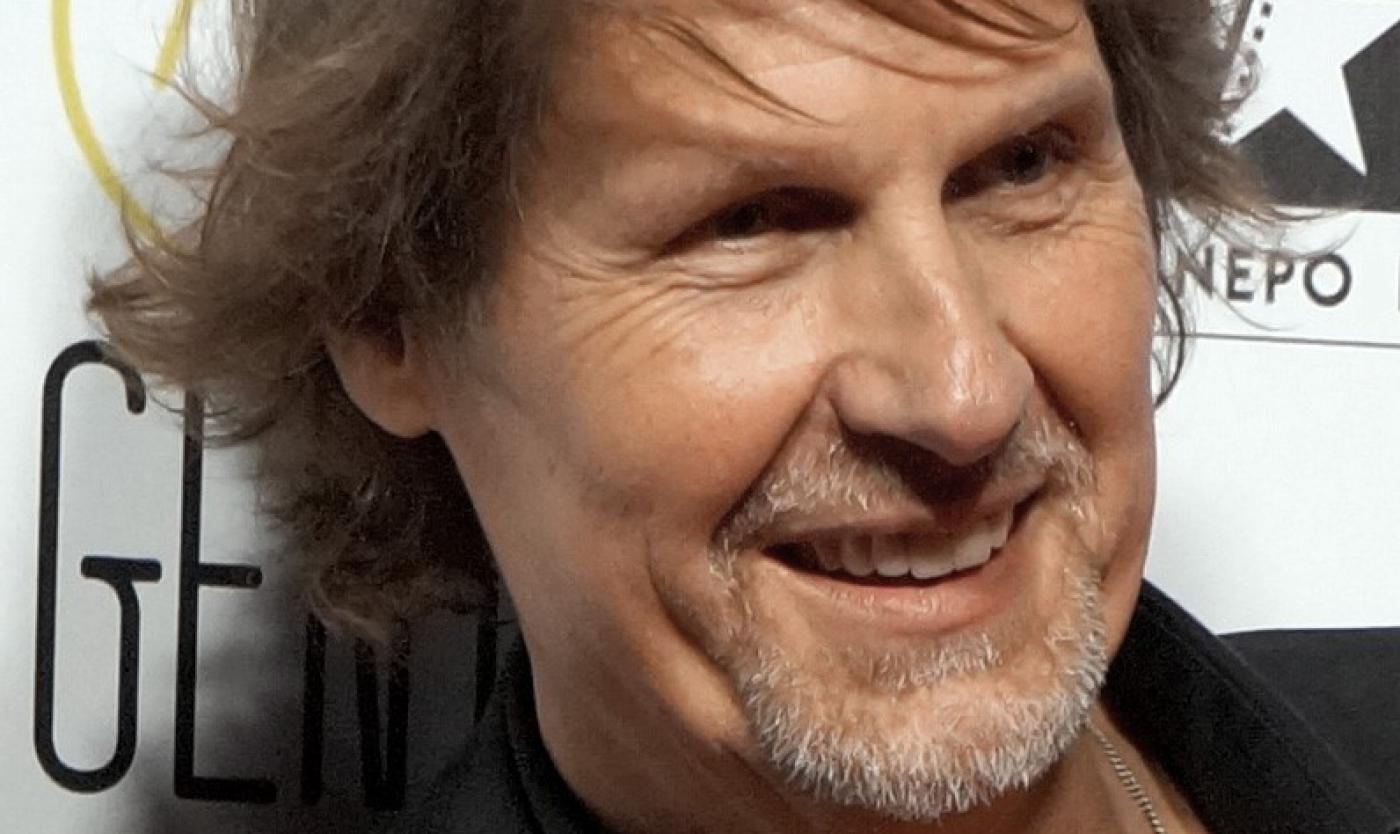
Willem Wallyn spent his undergraduate years at VUB. "In itself, not much has changed on campus. Some buildings have been added and buildings that looked modern then are not anymore. I like transience, I look at it with a soft and melancholic gaze."
FM Brussels
1985 attracts more than a million viewers each time and elicits a lot of reactions. "To my surprise, the series is very popular with a very wide audience. For instance, I get calls from gendarmes with whom I was in law at the time, who want to point out to me either that I am very wrong or very right. I still see a lot of alumni, like Luckas Vander Taelen, or people I used to do radio with on FM Brussels back then, who of course say they like it."
FM Brussels was the forerunner of what is now BRUZZ Radio. "That free radio station was a blessing for my generation. We felt then that you could do anything you wanted. And we did. FM Brussels had a large audience, it was innovative, we put a lot of time and energy into it. The feeling that we were socially relevant is something we carried with us for the rest of our lives. Whether it was in the arts, in politics or in management. For the people who used to gather there, the world was at their feet. In a very practical way. The world listened to us. That made for a fascinating entertainment and cultural life and, above all, fascinating friendships."
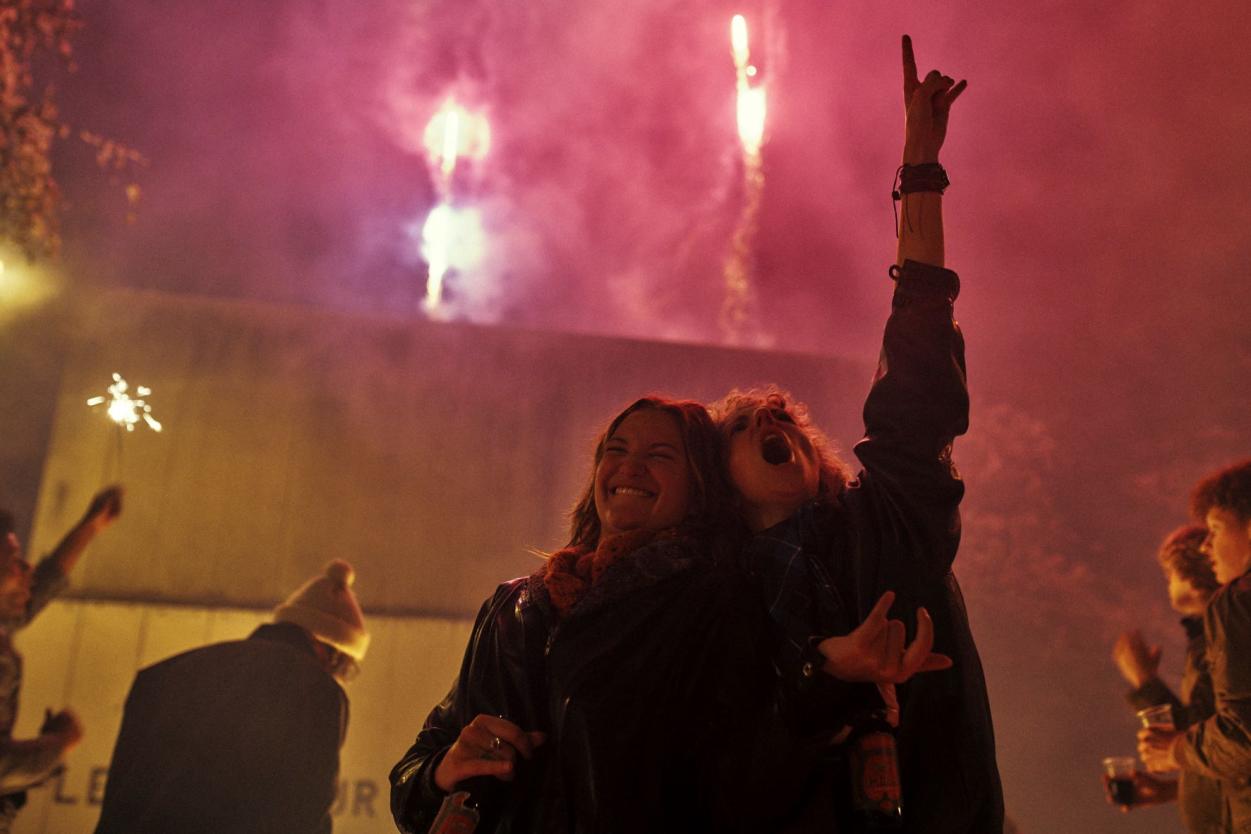
"It was the period right after punk and it went beyond music and playing some records, we started organising things, travelling the country. In one form or another, that formula was copied by Studio Brussels. It left a lasting influence on me that made sure I never felt tied to my degree. It was a step in life for me. By far most people I know from that period have tried all sorts of things in life."
"At the same time, the early 1980s was also a strange, dark period with a lot of polarisation, sometimes dark and threatening. That combined with the no future idea from punk, you come pretty close to what the Dadaists were doing: amusing yourself even in that darkness. It also came with a perfect soundtrack with cold wave and the new romantics giving you a bit of a fin-de-siècle feel. Yet we were also shocked by things like the nuclear threat, by the Gang of Nivelles. But I was never scared in that period, I followed it and saw it all happening but we stood above it in our youthful pretence with a sense of immortality."
Molotov cocktails
"The relationship between students and gendarmerie was quite black and white. There was also a lot of arguing against raising the enrolment rule to 10,000 francs. Whether it was an existing rule or not but I, for example, was convinced that the campus was a kind of neutral zone where the gendarmerie was not allowed to come. So we went provoking, I still threw molotov cocktails at the barracks across the campus. That black-and-white thinking about the gendarmerie as fascists was part of those days. I had a caricatural image of those men in uniform, while of course there were also just good guys among them. I was at Koekelberg atheneum and there were classmates there who went to the gendarmerie. They were often boys who needed a job at a time when that was not so obvious."
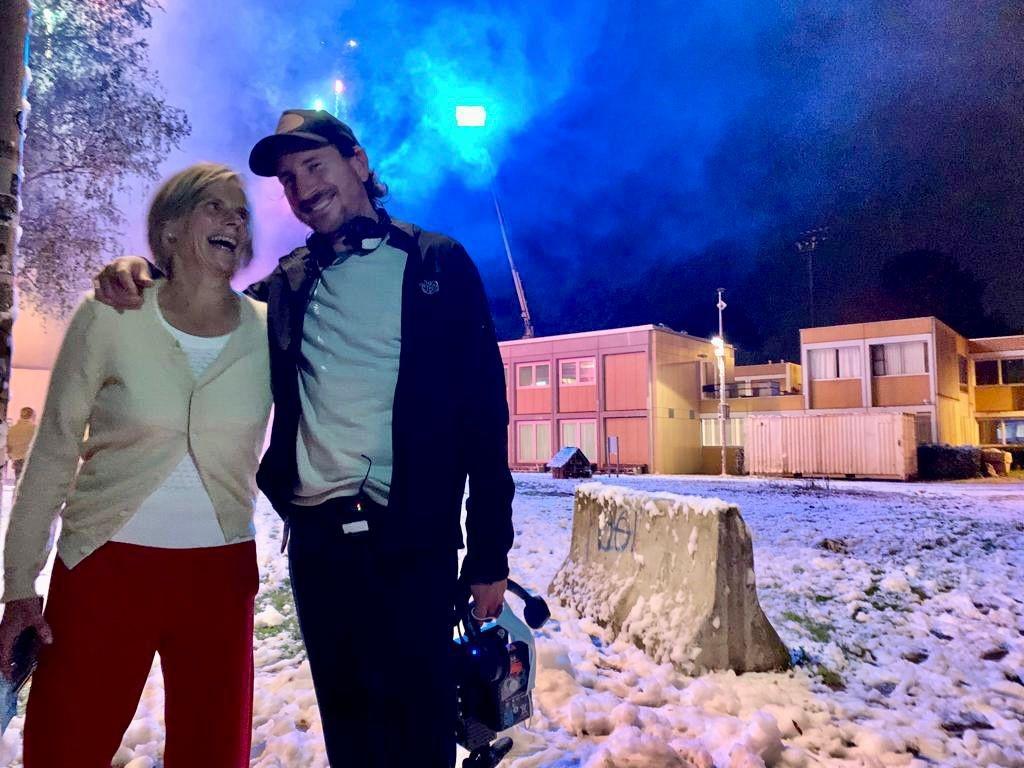
Caroline Pauwels on the 1985 set with director Wouter Bouvijn.
"A part of my law studies was criminology and there I also met gendarmes, I have kept good friends from that. That's where my image towards them changed. Later, when I started as a lawyer I did an internship at the office that represented the gendarmerie union. There I defended gendarmes with gambling debts, who had stolen or deserted."
The subject
"I knew the trials around the Gang as a lawyer and worked on the case at different levels there. As a screenwriter, I always try to describe as many things as possible that I know and where I can take a dramatic point of view. My absolute philosophy of life about human beings is that there are no bad people. When you take a subject like the Nijvel gang with that philosophy, it's quite a challenge. To be clear: I was asked by a production company to write the series. You can never start this kind of project on your own. It is two to three years of work and you never know if it is financially viable. On the other hand, I was also asked because I am bilingual and 'bankable' for film projects in France (Canal Plus financed the project)."
"Along the one hand, there are the facts: the crimes themselves. I didn't get to that, they are what they are. But I'm not a documentary maker, the dialogues, some of the characters are fictional. Of course, I had to be a bit careful, because there are people involved, either as victims, perpetrators or investigators."
The cause
"It was a perfect storm. There was a political climate full of sharp contradictions at the time: the Iron Curtain, the nuclear arms race was at its fiercest. There were two power blocs on the left and on the right, rivaled in size in just about every Western European country. Socialist or communist majorities were always possible. This made the Americans in particular nervous and they were therefore engaged in smaller to larger actions. I can't make the latter concrete but with us you saw that they were trying to pursue the strategy of tension. That was a CIA model where you scare the population so that as a result there is a demand for more authority and blue on the streets. In Italy, they went very far into that with the infiltrations into the Red Brigades and attacks from places like Bologna."
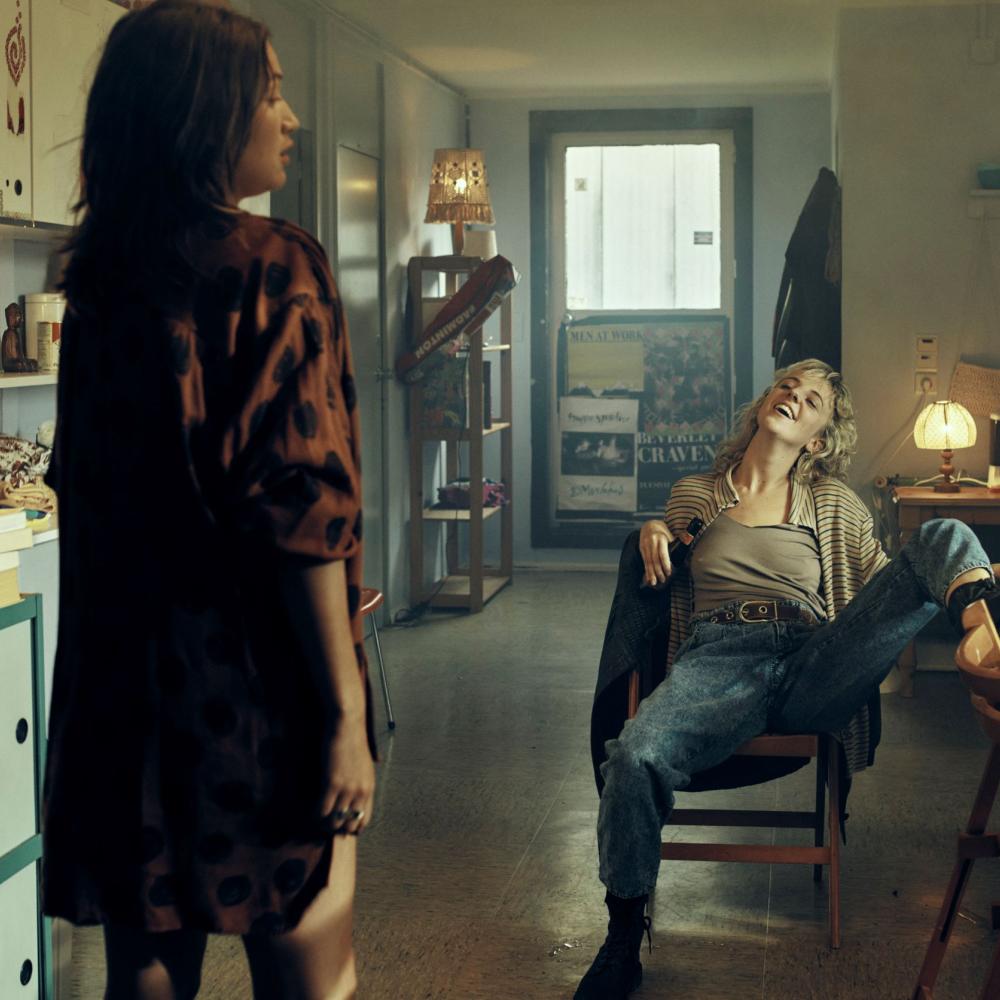
The cottages
The filming was done in the same shack where screenwriter Willem Wallyn lived in his student days. (c) Eyeworks and Thomas Nolf.
"In addition, there were all kinds of obscure far-right groups in Belgium: VMO, Front de la Jeunesse, but also really insane guys who had satellites in and around the forces of order. Then you had figures like Baron de Bonvoisin, who financed far-right groups that flirted with politics. In Brussels at the time, politics and petty crime were often intertwined. As a lawyer myself, I have still seen people together where I thought, how is it possible that these people are in the same room. Now that would be unthinkable. In that atmosphere, it only takes a few individuals who, with the necessary intelligence, combined with personal motives-for example, because they were thrown out of the gendarmerie like Bouhouche and Beyer-can set up a logistical operation that can serve numerous purposes. Sometimes ordinary crime, sometimes settlements or outright terror. In any case, they were well trained and organised."
"It was only a handful of people who sowed terror. Moreover, they operated in ever-changing formations which ultimately made them elusive. The objective also changed, because if you look at each objective per se, you arrive at a different motive each time. The only people who knew what they were doing were the guys who managed the fleet, distributed the stolen weapons. They had learned this from the stay-behind networks, set up by the Americans in many European countries after the war, to act in case of a possible Russian invasion. Those networks operated on the same principles used by the Nijvel gang. This is why individual accountability is so difficult to prove. There are those who were caught and confessed to facts, but never came to trial. Either because they were dead, or because they were acquitted."
Scenarist Willem Wallyn aan de linkerkant, with actors Aimé Claes, Tijmen Govaerts, Mona Mina Leon, and in the middle director Wouter Bouvijn.
"Former gendarme Bouhouche was acquitted for the murder of arms dealer Mendez. I followed that trial: his acquittal by a people's jury was truly insusceptible. Everyone knew he was guilty, but the weapons expert botched the whole Gang trial from the start. In this case, it was about the weapon used to kill Mendez that was found in the spaghetti sauce at Bouhouche's home. At the trial, that expert suddenly tells the jury that it could not be the weapon in question and the jury's doubts were sown. The curious thing was that he did get convicted for the theft of the weapon used to kill Mendez. Understand who can understand."
The solution
"Anyone looking for a solution, and that's where you always end up in criminology, has to look at who benefited. After the Nivelles gang, the gendarmerie switched from Renault to Volkswagen Golf and Porsche, their armament was increased fivefold and they were allowed to recruit 30,000 new people, who, by the way, they didn't find. I don't think it will ever be resolved. The only thing I can hope is that the case adjourns very soon, so people would still talk. During the making of the series, I was contacted by just about everyone involved, either directly or through their lawyers. Only Robert Beijer (who was recently arrested in Thailand and is now being interrogated again in Belgium) did not contact me. Some asked not to be mentioned because they would still risk a prison sentence. I have also often had to enter into discussions with former gendarmes who feel that I put them in a bad light. Which is not true: many of my heroes are former gendarmes, such as Major Vernaillen on whom there was a failed assassination attempt. They are the heroes of this whole story."